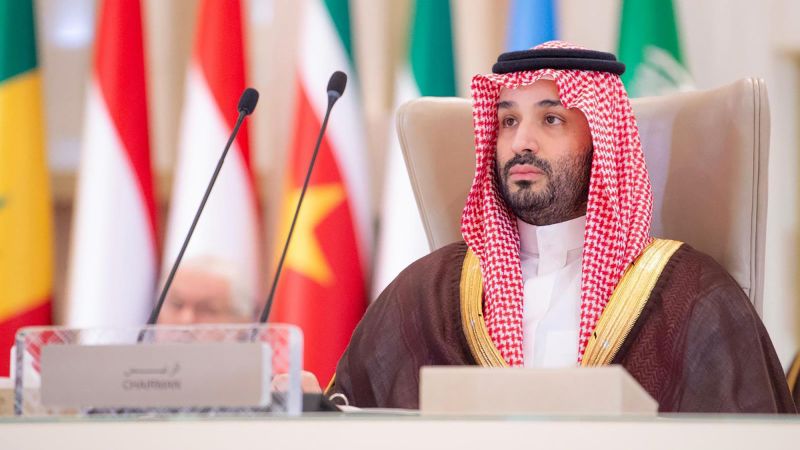The Palestinian-Israeli conflict has drawn global attention for decades, with different global leaders sharing varied perspectives on the issue. Recently, a fresh perspective emerged from Saudi Arabia’s Crown Prince, Mohammed Bin Salman, who accused Israel of committing a ‘collective genocide’ in Gaza. This unusual statement has caused quite a stir in the international platform, particularly given Saudi Arabia’s historically silent stance on the issue.
Mohammed Bin Salman, the de facto ruler of the oil-rich kingdom, reportedly laid unambiguous blame on Israel for the crisis in Gaza, pressing on the role it played in the conflict. The Saudi Crown Prince drew attention to humanitarian issues, specifically describing the situation as a ‘collective genocide’ – terminology not often employed by world leaders when addressing this dispute. By employing such a loaded term, the Crown Prince implied a systematic, intentional destruction of a significant part of the Palestinian population by Israel – an accusation that bears grave international justice implications.
Saudi Arabia, the birthplace of Islam and home to the religion’s two holiest shrines, has traditionally maintained a low profile on the Palestinian-Israeli conflict. Thus, the Crown Prince’s accusation aligns Saudi Arabia more closely with nations that have been more vocal in their criticism of Israel’s treatment of the Palestinians. This serves as a significant shift in the geopolitical landscape concerning Israel and the Middle East, which could potentially have profound implications for future diplomacy.
However, this pivotal claim by the Prince might not represent a change in the official Saudi policy towards Israel. The Saudi government, led by King Salman, the Crown Prince’s father, has not officially confirmed the stance. The Kingdom of Saudi Arabia has yet to establish formal diplomatic relations with the State of Israel, and its official position remains supportive of the establishment of a Palestinian state within the 1967 borders, with East Jerusalem as its capital.
While the Crown Prince’s statement could be seen as a way to appeal to the kingdom’s populace – which largely supports the Palestinian cause, it might also deepen the fissure between Saudi Arabia and the United States, one of Israel’s strongest allies. With tensions running high, the Crown Prince’s accusatory language towards Israel might have far-reaching implications on the region’s strained relations and fragile peace.
Furthermore, the Crown Prince’s statement also brings the issue of the Israeli-Palestinian conflict to a broader audience. It creates an additional layer of complexity to a conflict whose resolution necessitates global awareness and informed discourse.
It would be reductive to assume that the Crown Prince’s accusations will immediately alter the balance or the discourse of the conflict. Yet, it probes into the deeper nuances of geopolitical power dynamics. It brings to cognizance the divergence of views within the Arab world and the exercise of influence in a volatile region.
Such a statement coming from an influential Saudi leader gives voice to a narrative that further fuels the debate around the Israeli-Palestinian issue. Whether this will lead to a strategic change in Saudi Arabia’s stance towards the conflict or even influence other countries’ views on this matter remains to be seen. Undeniably though, Crown Prince Mohammed Bin Salman’s accusations have added another facet to the polychromatic puzzle that is the Palestinian-Israeli conflict.




